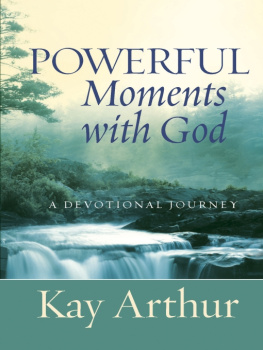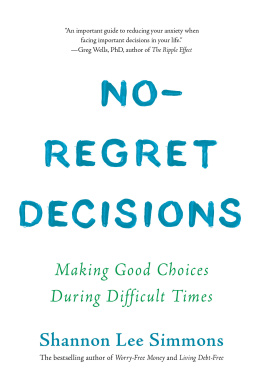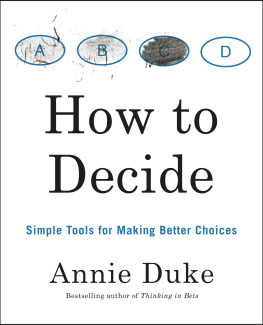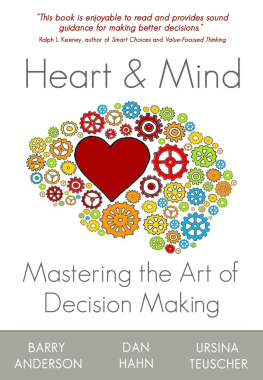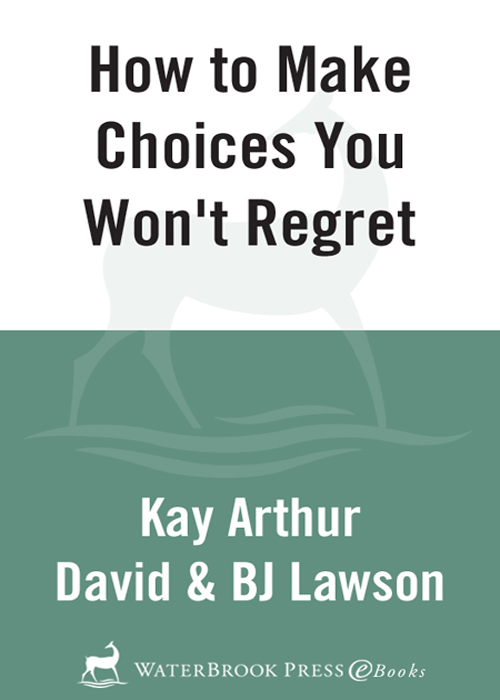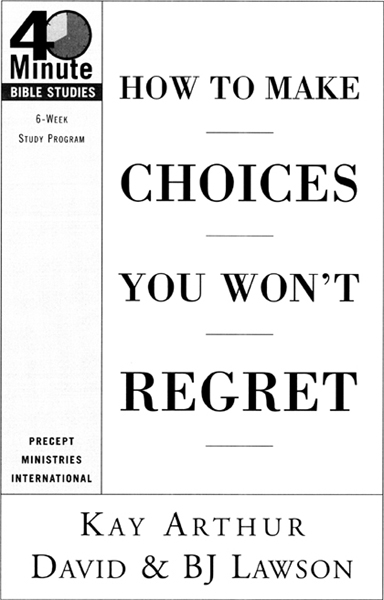This small-group study is for people who are interested in learning for themselves more about what the Bible says on various subjects, but who have only limited time to meet together. Its ideal, for example, for a lunch group at work, an early morning mens group, a young mothers group meeting in a home, a Sunday-school class, or even family devotions. (Its also ideal for small groups that typically have longer meeting timessuch as evening groups or Saturday morning groupsbut want to devote only a portion of their time together to actual study, while reserving the rest for prayer, fellowship, or other activities.)
This book is designed so that all the groups participants will complete each lessons study activities at the same time. Discussing your insights drawn from what God says about the subject reveals exciting, life-impacting truths.
Although its a group study, youll need a facilitator to lead the study and keep the discussion moving. (This persons function is not that of a lecturer or teacher. However, when this book is used in a Sunday-school class or similar setting, the teacher should feel free to lead more directly and to bring in other insights in addition to those provided in each weeks lesson.)
If you are your groups facilitator, the leader, here are some helpful points for making your job easier:
- Go through the lesson and mark the text before you lead the group. This will give you increased familiarity with the material and will enable you to facilitate the group with greater ease. It may be easier for you to lead the group through the instructions for marking if you as a leader choose a specific color for each symbol you mark.
- As you lead the group, start at the beginning of the text and simply read it aloud in the order it appears in the lesson, including the insight boxes, which appear throughout. Work through the lesson together, observing and discussing what you learn. As you read the Scripture verses, have the group say aloud the word they are marking in the text.
- The discussion questions are there simply to help you cover the material. As the class moves into the discussion, many times you will find that they will cover the questions on their own. Remember, the discussion questions are there to guide the group through the topic, not to squelch discussion.
- Remember how important it is for people to verbalize their answers and discoveries. This greatly strengthens their personal understanding of each weeks lesson. Try to ensure that everyone has plenty of opportunity to contribute to each weeks discussions.
- Keep the discussion moving. This may mean spending more time on some parts of the study than on others. If necessary, you should feel free to spread out a lesson over more than one session. However, remember that you dont want to slow the pace too much. Its much better to leave everyone wanting more than to have people dropping out because of declining interest.
- If the validity or accuracy of some of the answers seems questionable, you can gently and cheerfully remind the group to stay focused on the truth of the Scriptures. Your object is to learn what the Bible says, not to engage in human philosophy. Simply stick with the Scriptures and give God the opportunity to speak. His Word is truth (John 17:17)!
HOW TO MAKE
CHOICES YOU
WON T REGRET
I hate you! How can you stand there and say you love me? You dont call or come by except when you and your friend dont have any plans or when I beg to see you! Dont tell me you love me!
As his teenage daughter screamed, his heart was breaking. Finally he left, wondering, How did I get to this pointdivorced, with my daughter hating me? All I ever wanted was to be a great husband and father.
Perhaps you, too, are wondering how you ended up where you are, whether your life would be better if you had made different decisions along the way. Maybe your current situation is great, but youre facing some difficult choices.
Every day were faced with decisions, many of which are benign, with no lasting consequences. Others have the potential to change the course of our liveswhether for good or bad. Certain avenues open to us are marked with hidden pitfalls or lead in harmful directions, and in some instances the wrong choice can even bring death. Where do you go for direction?
This inductive study will give you guidelines for making these difficult choices. By inductive we mean you will go straight to the sourcethe Bibleto see what God has to say. Knowing His Word for yourself will equip you to make choices that bring honor to Him and lead you to peace.
David was Israels great and celebrated second king. His obedience had resulted in an unprecedented outpouring of blessing, not only on his household, but on all of Israel. A married man with a number of wives who had borne him many children, David had much about which to be thankful, but with his success came new opportunities and decisions. Lets take a look at this man David and the choices he made.
OBSERVE
Leader: Read aloud 2 Samuel 11:1-5.
- Have the group say aloud and underline every reference to David, including pronouns.

It was normal for kings to go to war in the spring, which marks the end of the rainy season. The roads would be passable, there would be fodder for the animals, and an army on the move would be able to raid the fields for food.

1Then it happened in the spring, at the time when kings go out to battle, that David sent Joab and his servants with him and all Israel, and they destroyed the sons of Ammon and besieged Rabbah. But David stayed at Jerusalem.
2Now when evening came, David arose from his bed and walked around on the roof of the kings house, and from the roof he saw a woman bathing; and the woman was very beautiful in appearance.
3So David sent and inquired about the woman. And one said, Is this not Bathsheba, the daughter of Eliam, the wife of Uriah the Hittite?
4David sent messengers and took her, and when she came to him, he lay with her; and when she had puri fied herself from her uncleanness, she returned to her house.
5The woman conceived; and she sent and told David, and said, I am pregnant.
DISCUSS
- What did you learn from marking David in verse 1?
- What happened to David when he stayed home and didnt go to battle as kings should have?
- What course of events led to Bathshebas pregnancy?
- What choices could David have made to change the outcome of this story?







